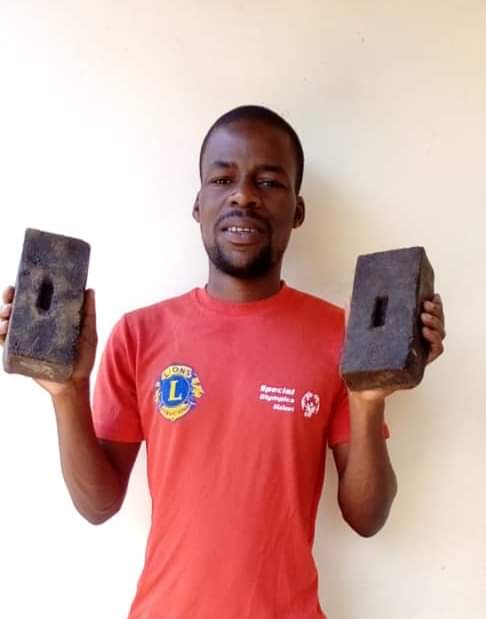By Monica Tambala

Lilongwe, MANA: A Zomba based group of young environmentalists has embarked on an initiative to turn plastic wastes into bricks to conserve the environment and improve public health by reducing plastic waste and its inherent toxic threat to planet earth.
Lumbani Mvula said in an interview that their main goal is to reduce the indiscriminate dumping of plastic waste in public places like markets as well as to play a major part in Malawi’s sustainable development goals, in accordance with Malawi 2063 SDG 15 about Life on Land in particular.
“For some years I have run a business making briquettes from waste materials, as an alternative to charcoal in order to help prevent deforestation and attendant problems. I saw a problem and wanted to be a part of the solution,
Plastics take 500 years to fully decompose and are toxic when they are burnt because they release harmful substances into the air causing ambient pollution why the more reason to find a better way of disposing them,” he said.
Mvula said that bricks made from the plastic wastes are much stronger than cement bricks, more affordable and environmentally friendly hence the interest to grow the team and open other depots and collection points to increase operations.
He said they are seeking funds to enable the purchased of machinery to replace their old equipment so as to speed up their processes, a vehicle to collect plastic waste from farther fields as well as to purchase Personal Protective Equipment (PPE) for their health and security workers.
Commenting separately, renowned Malawian Environmentalist, Mathews Malata commended the young eco-entrepreneur for the efforts he has been doing at a time when the country is having issues with thin plastics.
“We need a lot of innovators like him to continue finding alternative ways of making use of the trash giving it value and in this case providing solutions like in the construction sector,” he said.
Malata however appealed to government to make some deliberate policies, have some funds ready where such entrepreneurs can easily tap resources from it and implored the entrepreneurs to also write proposals to United Nations and European Union to get some funds for implementing their projects.
“We have been advocating for the national climate change fund and we have also been collecting carbon tax but the money doesn’t go to this fund, I think this fund would have been utilised by such innovators like Lumbani,
We should therefore prepare the innovators for opportunities in terms of internal capacity building and the skill of writing proposals because money does not come easy,” he said.
He advised the group to conduct a proper feasibility study on how they can do their operations because the UN has currently outlawed plastics which if passable can have implications on the business.


